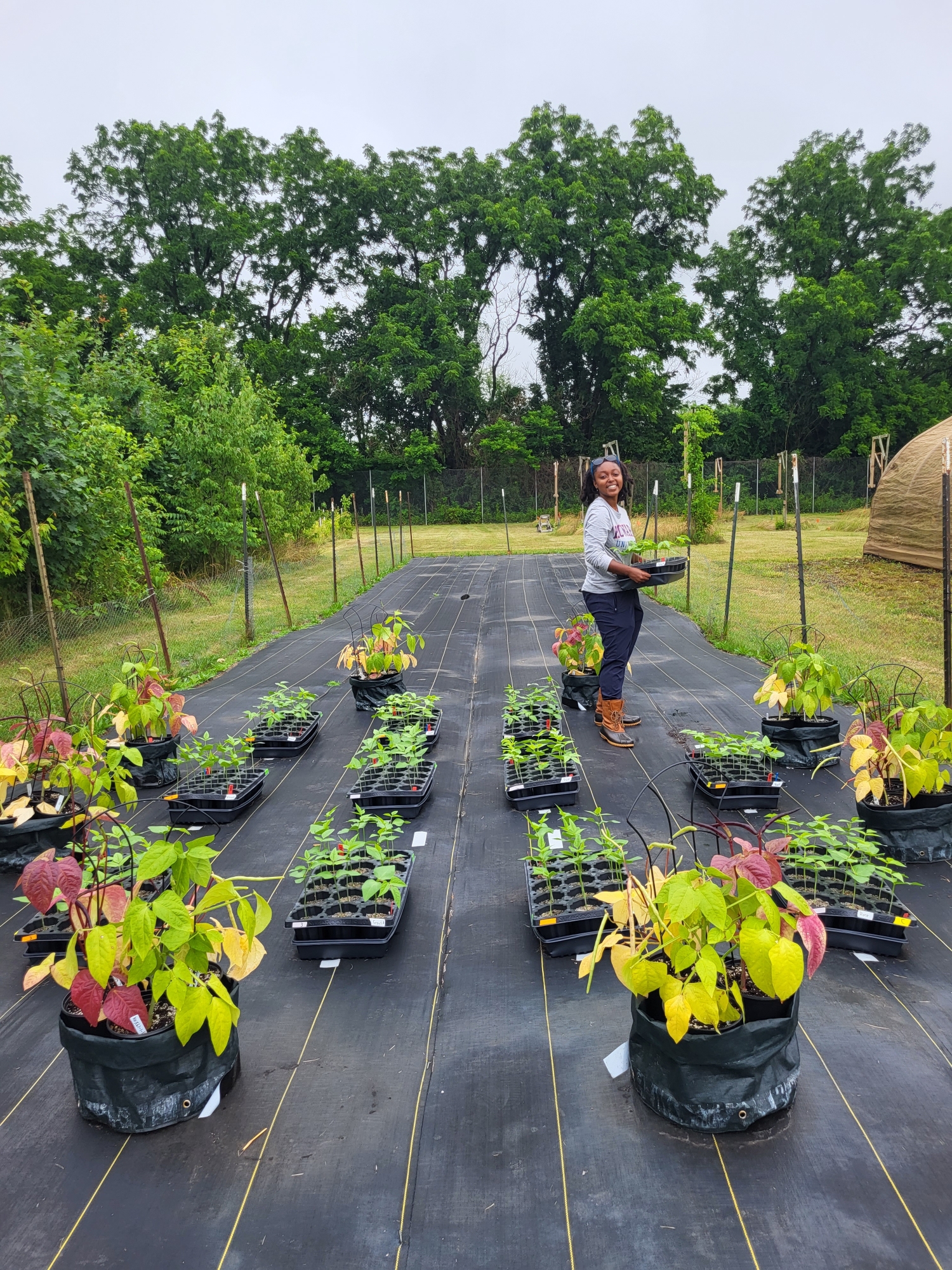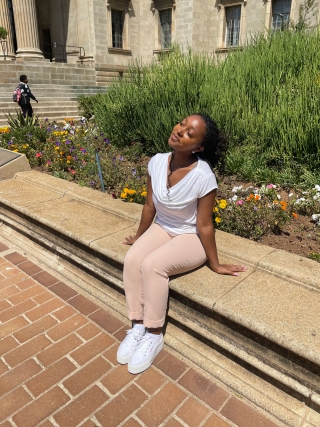Knauss legislative fellowships in Congress help build careers — and they're fun and educational. See our video and fact sheet for details.
Trowel and Error: Reflecting on My Path in Environmental Justice
As a child, I didn’t spend a lot of time outdoors. Growing up in Southeast Baltimore, outdoor spaces weren’t very accessible. I remember pleading with my dad to let me play in the backyard, but he didn’t want me to get bitten by a rat. Besides, there wasn’t much out there—just a narrow slab of concrete.
When I was in third grade I moved to Northeast Baltimore, where I had a yard for the first time. I tried planting a garden, but nothing ever grew. Through elementary and middle school, I became more of an inside kid, joining a competitive robotics team in the fourth grade. Sometimes, I still miss the frosty AC of the computer lab when I’m out sweating in the field.
A few years later, I was fortunate enough to attend an elite private high school on the other side of town. I was determined to take advantage of every opportunity possible while I was inside those walls because I wasn’t sure if a day would come when we could no longer afford it. I enrolled in the STEM program, taking classes in computer science and even a biomedical engineering course at Johns Hopkins.

To receive my STEM certification, I needed to complete a summer internship. Fortunately for me, my school had an Environmental Science Summer Research Experience (ESSRE). It was the most time I had ever spent outdoors. I don’t remember what kind of experiments we conducted or what my final paper was about, but I do remember the cool feeling of dirt under my nails and the satisfaction of a hard day’s work.
After my ESSRE experience, I wanted to pursue additional fieldwork. I wondered if my enjoyment of sweating under the blistering sun was a fluke or the seed of a new obsession.
Naturally, applying to become a teaching assistant for ESSRE was the next step in exploring my new infatuation. So, when the director rejected my application, I was enraged. I had tasted the forbidden fruit, and my unquenched appetite for fieldwork sent me into a fervor. When the director requested volunteers to work the school gardens, I was at a crossroads. On the one hand, I was bitter and ready to move on. On the other hand, I had always wanted to learn how to nurture something from a delicate seedling to a hearty adult, to create life with my own two hands.
I’ll always be proud of that 15-year-old girl who swallowed her pride and took on a new volunteer role at the gardens. That decision changed the trajectory of my entire life. After volunteering in the garden, I knew I liked growing my own food, but I didn’t know if it could be a career. To gain more clarity, I interned at an urban farm near my house in Baltimore the next summer.
It was there that my passion truly took root. The farm’s mission is to (re)introduce Black, Indigenous, and People of Color (BIPOC) communities to nature, acknowledging that systemic oppression has historically forced marginalized groups away from their ancestral lands and ways of knowing. This experience solidified my decision to major in environmental science and attend Howard University as a Karsh STEM Scholar. I was committed to conducting research that would support communities wanting to grow their own food in Baltimore City.
Since starting college, I have been intentional about collecting knowledge from around the world to bring back to my community. Howard University has proven to be the perfect place for that, as I have been able to travel as part of my interdisciplinary studies. In Berlin, Germany, I observed beautiful gardens overflowing from apartment decks. In Havana, Cuba, I tasted the fruits of a junkyard turned into a lush oasis. On the outskirts of Cape Town, South Africa, I exchanged secrets with volunteers at a school garden that provides affordable produce to residents. Most recently, I visited Sḵwx̱wú7mesh Úxwumixw (Squamish Nation), where the climate action team told me how they restored native species that Nation members had only ever heard stories about.
"All around the world, I hear stories similar to mine—stories of oppression, struggle, liberation, and, increasingly, success."
All around the world, I hear stories similar to mine—stories of oppression, struggle, liberation, and, increasingly, success. My next journey takes me to North Carolina, the birthplace of the modern environmental justice movement. Through my current position at Maryland Sea Grant as a Community Engaged Intern, I will have the opportunity to meet with interns from around the country and discuss our shared goals and experiences.
This summer at Sea Grant, as an intern for the communications team, I am using my research skills to report on engaging stories from unique perspectives around the Chesapeake Bay watershed. I look forward to seeing my work published as a result of my time as a Community Engaged Intern and learning about all the exciting environmental research being conducted in my own backyard.
See all posts from the On the Bay blog




